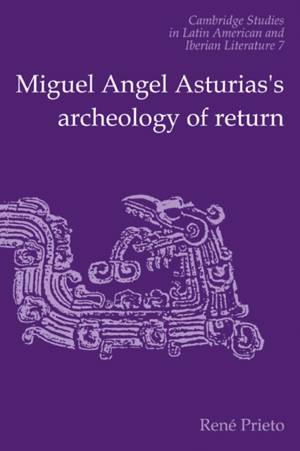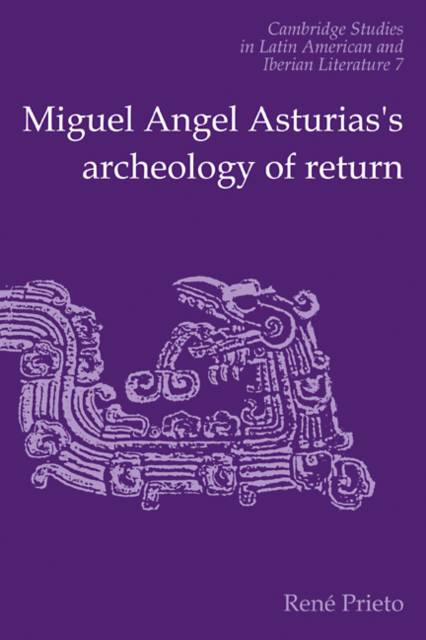
En raison d'une grêve chez bpost, votre commande pourrait être retardée. Vous avez besoin d’un livre rapidement ? Nos magasins vous accueillent à bras ouverts !
- Retrait gratuit dans votre magasin Club
- 7.000.000 titres dans notre catalogue
- Payer en toute sécurité
- Toujours un magasin près de chez vous
En raison de la grêve chez bpost, votre commande pourrait être retardée. Vous avez besoin d’un livre rapidement ? Nos magasins vous accueillent à bras ouverts !
- Retrait gratuit dans votre magasin Club
- 7.000.0000 titres dans notre catalogue
- Payer en toute sécurité
- Toujours un magasin près de chez vous
60,95 €
+ 121 points
Format
Description
Miguel Angel Asturias (1899-1974) is one of the notable literary figures in Latin America who in the 1920s contrived both to explore and define Latin literature within the mainstream of Western history. He managed to be poetic, political and mythological at the same time, and with a degree of synthesis rarely achieved then or since. As is the case with many Latin American writers, his work is inextricably linked with politics, and he lived in exile for many years. He was influenced by Indian mythology, fantasy and Surrealism and was the first Latin American novelist to understand the implications of anthropology and structural linguistics for culture and for fiction. In 1967, Asturias became the first Latin American novelist to win the Nobel Prize. René Prieto examines how Miguel Angel Asturias turns to the cultural traditions of the ancient Maya and combines them with the rhetoric of surrealism in order to produce three highly complex and widely misunderstood masterpieces; the Leyendas de Guatemala (1930), Hombres de maíz (1949) and Mulata de tal (1963). Asturias is the first American author to succeed in portraying an indigenous world vision that is blatantly non-Western. Borrowing a variety of techniques from preColumbian manuscripts, he creates a new type of literature that is still the best example of the cultural blend typifying the Americas. This is the first book to examine these three novels for their originality beyond the usual political readings normally attributed to them.
Spécifications
Parties prenantes
- Auteur(s) :
- Editeur:
Contenu
- Nombre de pages :
- 320
- Langue:
- Anglais
- Collection :
- Tome:
- n° 7
Caractéristiques
- EAN:
- 9780521112451
- Date de parution :
- 04-06-09
- Format:
- Livre broché
- Format numérique:
- Trade paperback (VS)
- Dimensions :
- 152 mm x 229 mm
- Poids :
- 471 g

Les avis
Nous publions uniquement les avis qui respectent les conditions requises. Consultez nos conditions pour les avis.






